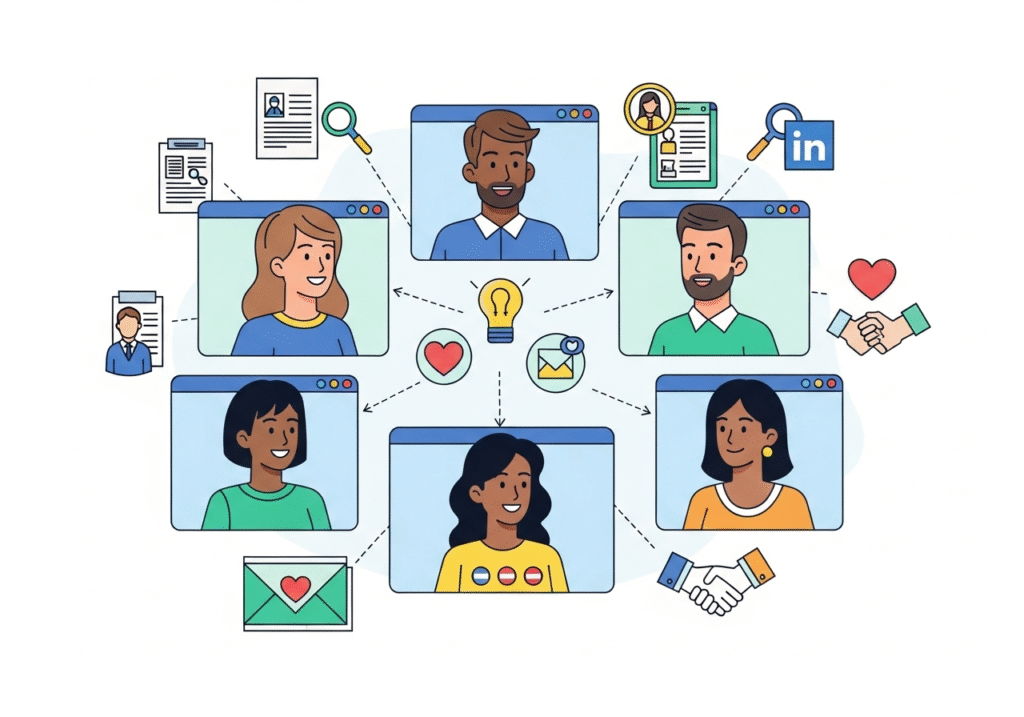Physical Address
304 North Cardinal St.
Dorchester Center, MA 02124
Physical Address
304 North Cardinal St.
Dorchester Center, MA 02124
Losing a job can feel like the ground has been pulled out from under you. The emotional toll of a layoff often extends beyond financial concerns, impacting self-esteem, mental health, and a sense of belonging. Layoff support groups offer a lifeline for individuals navigating this challenging transition, providing a space to share experiences, rebuild confidence, and foster community. In this post, we’ll explore the benefits of layoff support groups, how they work, and practical steps to find or start one, empowering you to regain balance and move toward a fulfilling professional future.

A layoff is more than just a loss of income—it can shake your sense of identity and purpose. According to a 2021 study by the American Psychological Association, job loss is associated with increased risks of anxiety, depression, and lowered self-esteem, with 45% of individuals reporting significant emotional distress following a layoff (APA, 2021). These feelings can isolate individuals, making it harder to take proactive steps toward recovery.
Support groups address this emotional fallout by creating a safe, non-judgmental environment. They allow participants to process their experiences, share coping strategies, and realize they’re not alone. As Dr. Robert Leahy, a clinical psychologist and author, notes, “Connecting with others who understand your experience can reduce feelings of shame and help restore a sense of agency” (Leahy, 2020).
Layoff support groups are structured gatherings—either in-person or virtual—where individuals who have experienced job loss come together to share stories, offer mutual support, and exchange resources. These groups often include:
A 2023 report from the Society for Human Resource Management (SHRM) found that individuals who participated in support groups after a layoff were 30% more likely to find new employment within six months compared to those who didn’t (SHRM, 2023). This highlights the practical and emotional value of these communities.

Job loss can erode self-worth, especially when it feels personal. Support groups counteract this by providing validation and encouragement. Hearing others’ stories and successes can inspire hope and remind you of your skills and value. For example, a 2022 study from the University of Michigan found that group-based interventions significantly improved participants’ self-efficacy and optimism about future employment (University of Michigan, 2022).
Isolation is a common side effect of job loss. Support groups foster a sense of belonging, connecting you with others who understand your struggles. This camaraderie can reduce loneliness and provide a network of accountability partners to keep you motivated.
Many support groups offer practical tools, such as job search strategies, resume critiques, or access to local job fairs. Some even connect members with employers or recruiters. For instance, organizations like CareerOneStop, sponsored by the U.S. Department of Labor, provide resources for finding local support groups and job training programs (CareerOneStop, 2025).
Sharing your story in a supportive environment can be cathartic. According to a 2020 study published in The Journal of Occupational Health Psychology, group support reduced symptoms of depression in 60% of participants within three months (JOH, 2020). By processing emotions collectively, individuals often feel empowered to move forward.
If you can’t find a group that meets your needs, consider starting one. Here’s how:

Layoff support groups are more than just a place to vent—they’re a catalyst for personal and professional growth. By connecting with others, sharing resources, and rebuilding your confidence, you can navigate the challenges of job loss and emerge stronger. As the Harvard Business Review notes, “Community is a powerful tool for resilience, helping individuals reframe setbacks as opportunities for growth” (HBR, 2021).
Take the first step today. Search for a local or virtual support group, or start one in your community. You don’t have to face this journey alone—together, you can rebuild, reconnect, and rediscover your path to a balanced, fulfilling life.
Sources: